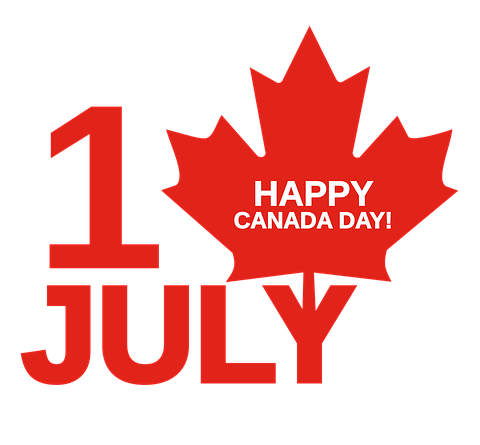Korach 5782 Canada Day
Happy Canada Day Weekend!
Or is it politically incorrect to wish people a happy Canada Day nowadays?
My first pulpit after I was ordained, 20 years ago, was in Vancouver. I remember Canada Day as a day very similar to the American Fourth of July – fireworks, concerts, parades, barbeques.
I come back to Canada and discover that Canada Day has changed, with many communities using Canada Day as a time to reflect on reconciliation in the wake of a reckoning with Canada’s shameful treatment of First Nations peoples and the ongoing discovery of unmarked graves of children who died at residential schools, in some cases with their families never even having been told that their children had died.
Some indigenous groups, such as Idle No More, have been advocating canceling Canada Day for years. The group’s co-founder, Sheelah McLean, said that the master narrative is that Canada is a democratic and multicultural country founded on equality and democracy. She said,
We want to really challenge that because we know that this country is actually built on genocide of Indigenous people and racist policies and practices that have really benefited white settlers more than other groups.
Those calls have continued into this year. The Moose Cree First Nation in Northern Ontario has decided it would be “inappropriate” to celebrate Canada Day given discoveries of possible unmarked graves in several First Nations.
Controversy is not new to Canada Day. Even back in 1869 a bill calling for the creation of the holiday was resisted by Nova Scotia MPs who said it would be a “day of lamentation” for Nova Scotians who were forced into confederation.
Even though there have not been as many cancellations of Canada Day this year as there were last year, there’s no denying that in many places Canada Day today is very different than it was when I was in Canada 20 years ago. Many locations have added reconciliation themes into the celebration. Some have canceled fireworks and including programming focused on First Nations peoples instead.
How should Canada Day be celebrated? Should it be canceled because it’s a celebration of a colonialist past that engaged in intentional attempted cultural genocide of the indigenous peoples? Or should celebrations continue as in the past, because every country has chapters of their history they’d rather forget, and Canada is a great multi-cultural society that deserves celebrating?
I’m sure emotions are high on both sides of this debate. But the debate is an example of an argument that the Jewish tradition would call l’shem shamayim, for the sake of heaven.
In this week’s Torah portion Korach leads an attempted rebellion against Moses. Korach wanted the high priesthood for himself. He felt entitled. He challenged the leadership of Moses and Aaron. “What makes you so special?” he asked. “We’re all holy. God is in our midst.”
Aaron and Korach had a confrontation that reads like the shootout at the OK Corral, except with incense pans instead of six shooters. God is on Aaron’s side, and the earth opens up and swallows Korach and his band of followers alive.
The Mishnah in Pirkei Avot uses this episode to teach us the difference between arguments that are for the sake of heaven and those that are not.
כָּל מַחֲלֹקֶת שֶׁהִיא לְשֵׁם שָׁמַיִם, סוֹפָהּ לְהִתְקַיֵּם. וְשֶׁאֵינָהּ לְשֵׁם שָׁמַיִם, אֵין סוֹפָהּ לְהִתְקַיֵּם. אֵיזוֹ הִיא מַחֲלֹקֶת שֶׁהִיא לְשֵׁם שָׁמַיִם, זוֹ מַחֲלֹקֶת הִלֵּל וְשַׁמַּאי. וְשֶׁאֵינָהּ לְשֵׁם שָׁמַיִם, זוֹ מַחֲלֹקֶת קֹרַח וְכָל עֲדָתוֹ:
Every dispute that is for the sake of Heaven, will in the end endure; But one that is not for the sake of Heaven, will not endure. Which is the controversy that is for the sake of Heaven? Such was the controversy of Hillel and Shammai. And which is the controversy that is not for the sake of Heaven? Such was the controversy of Korah and all his congregation.
The Malbim, a 19th century Ukrainian rabbi, teaches that what made Hillel and Shammai’s arguments “for the sake of heaven” is that they had a common goal, discerning God’s will. It was not an argument coming from a place of seeking personal personal gain or honor. Korach’s argument, on the other hand, is one that was motivated by seeking glory, honor, and riches.
I believe both sides in the debate about what to do with Canada Day are coming with a common goal – they want Canada to be the best possible country that it can be. For some that means focusing on the past, getting away from a holiday that has too many associations with a horrible colonialist history, and for others it means celebrating what we have already accomplished.
Most communities seem to be taking a middle ground. Celebrating Canada Day, while acknowledging that Canada’s establishment came with a lot of pain and suffering for indigenous peoples.
On Thursday I heard an interview on CBC with someone who was involved in hosting CBC’s Canada Day program, unfortunately I don’t remember his name. But the interviewer asked, “A lot of people say that Canada Day was a lot more fun five years ago. How do you respond to that?”
I thought his answer was very wise. He said Canada is a great nation that has accomplished a lot, and there is much to be proud of and much to celebrate. He said he’s proud to be a Canadian, there’s no nation he’d rather be a citizen of. He believes Canada Day should be a day to celebrate. At the same time, we can’t put our heads in the sand and ignore our past. But we can do both. We can acknowledge our past and work to correct past wrongs, while continuing to celebrate what we have accomplished.
I think his reply is spot on, and it’s actually in keeping with a Jewish approach to the world. If we look at the biographies of many of our earliest leaders, we can see they are very flawed people. Abraham passed his wife off as his sister and was ready to sacrifice his son. Jacob deceived his brother out of his blessing. King David had a general sent to the front where he was killed so that he could take the guy’s wife. We don’t hide those histories. We don’t ignore them. We read the stories in full every year, the good and the not so good.
But it’s very clear that even flawed individuals – and by extension flawed nations – can accomplish great things and be worthy of being held up as a role models and worthy of being celebrated.
Canadians should be proud of the way they are mostly finding a middle path, a way to celebrate Canada Day and the nation’s accomplishments while recognizing the past and seeking a more positive way forward.
The two nations that I’m citizen of, the United States and Israel, could both do well to learn from Canada’s example. Both nations also were founded on the pain and suffering of other people, yet neither has done as good a job as Canada at confronting their unsavory pasts and seeking reconciliation with the wronged parties.
May you enjoy the rest of your Canada Day weekend, however you are celebrating it. Maybe with some jazz?



